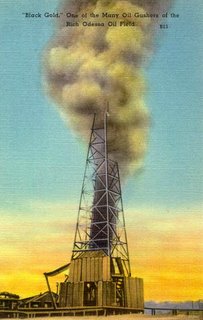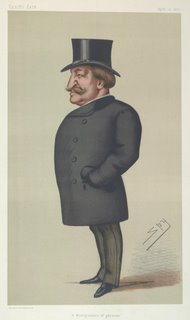
September 19, 2025
By Debashis Chakrabarti
The Modi government has set out to remake India’s schools through the National Education Policy, a sweeping blueprint drafted in Delhi with scant consultation from the states. Presented as a visionary reform, it centralizes authority, elevates ideology, and accelerates privatization—reshaping the classroom into an instrument of power. But a counter-document, the People’s Education Policy, is gathering force, offering a radically different vision: one rooted in federalism, pluralism, and the conviction that education is not a commodity but the republic’s most essential public good.
In the summer of 2020, as India staggered through its first pandemic lockdown, the government in New Delhi quietly enacted a sweeping change. Without parliamentary debate, and with scant consultation of the country’s states, Prime Minister Narendra Modi’s cabinet introduced the National Education Policy (NEP), a document of nearly five hundred pages that claimed to chart the nation’s educational future. At a moment when millions of children were locked out of school, the government was redesigning the very system to which they would return.
The NEP, framed as a visionary reform, promised to modernize India’s classrooms, expand access to higher education, and restore pride in India’s civilizational heritage. It was presented as both a pedagogical breakthrough and a cultural rebirth. But to many educators, activists, and state leaders, it felt like something else: an attempt to consolidate ideological control over the minds of India’s youth, under the guise of reform.
Nearly five years on, a counter-document has emerged. The People’s Education Policy (PEP), drafted by an alliance of teachers’ unions and civil society organizations, positions itself not merely as a critique but as an alternative blueprint. If the NEP represents a centralized, top-down redesign of India’s classrooms, the PEP insists on a bottom-up, pluralist model, one that treats education as a public good and a democratic imperative.
The tension between the two documents is not bureaucratic. It is existential. For the world’s largest youth population, education is destiny. Whether the NEP or the PEP sets the course will shape India’s democratic future, its economic possibility, and its cultural soul.
The Politics of Control
The most striking feature of the NEP is its centralization. Education in India has historically been a contested terrain between the Union government and the states. Until 1976, it was the states alone who held constitutional responsibility. The NEP, drafted in Delhi with minimal consultation, bypasses this delicate balance. It envisions a uniform national curriculum, steered by a central authority that places the Prime Minister at the apex of a newly created National Research Foundation.
This may look efficient on paper. But in practice, it has provoked resistance. States such as Tamil Nadu, Kerala, and West Bengal have balked at the imposition, insisting on their right to craft policies suited to their linguistic and cultural landscapes. The Supreme Court, too, has weighed in, noting that states cannot be coerced into compliance. Education in India, the Court reminded, is a shared responsibility—a constitutional compact that the NEP risks unravelling.
The PEP, by contrast, proposes a return to first principles: that education be restored to the State List. Far from a radical disruption, this is a reversion to the constitutional status quo prior to 1976. In doing so, the PEP recognizes India not as a homogenous nation but as a mosaic of languages, histories, and pedagogical traditions. Federalism here is not a concession but a condition for stability.
Economics of Exclusion
The NEP’s rhetoric is expansive. It reaffirms India’s long-standing but unfulfilled commitment to spend six per cent of GDP on education. Yet the numbers tell another story. In the years since the NEP’s adoption, government spending on education has stagnated; in real terms, it has declined. The gap has been filled by private actors—elite schools, coaching centers, and an aggressively expanding EdTech industry. The result is a deepening stratification, in which the wealthy purchase pathways to success while the poor are left with underfunded public schools and rising fees.
This privatization-by-stealth is not accidental. It reflects the Modi government’s broader embrace of market logics in sectors once considered public goods. Education, in this vision, is less a right than a commodity, subject to the efficiency of the market and the discipline of competition.
The PEP, in turn, calls for a constitutional guarantee: a mandatory six per cent of GDP for education, rising to ten per cent over time. This is not merely a demand for more spending but a reassertion of principle—that education is infrastructure as vital as roads or power. By extending free education from pre-primary through secondary levels, the PEP seeks to underwrite not just access but equity, making the democratic promise of schooling tangible.
The Philosophy of Knowledge
At its heart, the debate is not about budgets or bureaucracies but about the purpose of education itself. The NEP’s philosophical ambition is the revival of an “Indian Knowledge System.” Its proponents describe this as a revalorization of ancient traditions, from Vedic mathematics to Sanskrit texts. Its critics see something else: an ideological project that privileges a Hindu-majoritarian narrative, embedding it into textbooks and curricula in ways that sideline India’s plural heritage.
The institutional design reinforces these fears. By positioning political authority at the helm of research funding, the NEP blurs the line between statecraft and scholarship. The danger is not simply indoctrination but the slow erosion of academic freedom—the subtle pressure to conform, the muffling of dissent, the narrowing of inquiry.
The PEP, conversely, defines education as the defence of autonomy: the freedom of teachers to teach without interference, the right of institutions to set curricula, the obligation to cultivate questioning rather than conformity. In this, it returns to a philosophical lineage that stretches from Vidyasagar’s secular education to B. R. Ambedkar’s insistence that education is the “militant weapon” of democracy.
Cultural Stakes
India’s classrooms have always been mirrors of its cultural tensions. In colonial times, debates over Macaulay’s Minute on Education—English versus vernacular instruction—were battles over identity and power. After independence, the Kothari Commission framed education as the key to building a modern republic, one that reconciled diversity with unity.
The NEP of Modi Government echoes high sounding ambition but risks tipping the balance toward homogenization. By promoting Hindi and Sanskrit, by insisting on centralized curricula, it marginalizes the lived languages and local traditions that sustain India’s pluralism. Cultural richness, in this model, is streamlined into a singular narrative of national pride.
The PEP resists this flattening. It insists that children learn best in their mother tongues, that curricula must reflect local contexts, that diversity is not a hurdle but a resource. This is not just pedagogy but philosophy: a recognition that India’s democracy is nourished by its multiplicity, not threatened by it.
The Cost of Choices
What is at stake in this policy duel is more than pedagogy. It is the very architecture of India’s future. The NEP promises world-class universities and employable graduates but risks producing a generation trained to obey rather than to question. The PEP demands public investment and decentralization, but if implemented, it could unleash both social mobility and intellectual creativity on a scale India has long deferred.
The contrast is between control and freedom, between a state that moulds citizens for its purposes and a people who claim education as their right. The Indian classroom has become the country’s most consequential battleground. The winner of this struggle will not only shape the republic’s children but also define what kind of republic those children will inherit.

Debashis Chakrabarti
Debashis Chakrabarti is an international media scholar and social scientist, currently serving as the Editor-in-Chief of the International Journal of Politics and Media. With extensive experience spanning 35 years, he has held key academic positions, including Professor and Dean at Assam University, Silchar. Prior to academia, Chakrabarti excelled as a journalist with The Indian Express. He has conducted impactful research and teaching in renowned universities across the UK, Middle East, and Africa, demonstrating a commitment to advancing media scholarship and fostering global dialogue.

Credit: Citizen News Service
September 19, 2025
By Shobha Shukla
Artificial intelligence is not only for the rich and famous but also is deployed in health technologies to serve the poorest of the poor and marginalised communities – with equity and human dignity.
With remarkable ingenuity, India is combining advanced technology with fundamental community approaches to reach the unreached with standard WHO recommended public health services. This is a real practical strategy in action which provides a pathway for other low- and middle-income countries to follow.
WHO guidelines endorsed AI-enabled X-Rays for TB screening
WHO guidelines in 2021 endorsed artificial intelligence (AI) enabled computer-aided detection of TB with X-Rays. AI-enabled computer-aided detection was non-inferior for most TB interpretation. This was game-changing moment in public health because X-Ray interpretation was no longer dependent on availability of super-specialist radiologists for expert interpretation – unless needed. In most healthcare settings, especially remote areas, radiologists are seldom available or very occupied with clinical and research workload.
AI-enabled X-Rays are changing how diagnosis happens on the ground. Taking X-Rays closer to the communities is one way to get rid of diagnostic delays, catastrophic costs, and cut down on screening time.
It takes a minute to get screened by X-Ray and get the report (from AI-enabled computer-aided detection). Then for those with presumptive TB, they can get a confirmatory TB report in next hour or so – if portable WHO and ICMR recommended molecular test Truenat is used in the same TB screening and testing camp.
Ending TB warrants not only finding all people with TB – with early and accurate diagnosis – and linking them to care – but also about breaking down those critical diagnostic logjams and bottlenecks that make healthcare services inaccessible for most marginalised
WHO as well as India’s guidelines clearly state that all those found with presumptive TB using X-Rays (or symptomatic screening) should be offered WHO recommended upfront molecular test. Those with active TB disease should get latest TB treatment therapy with social support so that they can get cured.
TB infection also stops spreading when a person with the disease is on effective treatment.
India deployed AI to find TB among the most marginalised
Following science and evidence, for 100 days (7 December 2024 to 24 March 2025), government of India launched a massive campaign to find, treat and prevent more TB among high-risk groups in 347 districts initially. During this campaign, later it was expanded to almost 500 districts out of around 800 in the nation.
As per the concept note of this 100 days #TBMuktBharat (#TBFreeIndia) government campaign, battery operated ultraportable and handheld X-Ray machines with artificial intelligence enabled computer-aided detection along with highly sensitive portable, battery-operated and laboratory independent molecular test Truenat (made in India by Molbio Diagnostics) machines were to be taken in a van closer to the TB high-risk groups.
This was game-changing shift from screening those who had TB symptoms to screening everyone in high-risk settings – because almost half of TB patients are asymptomatic if we find them with X-Ray early on.
India TB Prevalence Survey 2019-2021 showed that almost half of TB patients would not have been found if upfront X-Ray screening was not done as they were asymptomatic. Other sub-national surveys also showed similar findings.
In 100 days, Indian government’s efforts found over 285,000 asymptomatic people (among high-risk groups) with active TB disease and linked them to treatment. In 100 days, over 12 crore people were screened for TB (mostly by using X-Rays).
Not even one of the 285,000 asymptomatic people with active TB disease would have been found if upfront X-Ray was not done. “Given the success of 100 Days campaign, now it has been extended to all districts in the country,” said Dr Rajesh Kumar Sood, District TB Officer (DTO) of National TB Elimination Programme (NTEP) and District Health Officer, National Health Mission, Government of India.
Ground zero: Kangra’s efforts towards ending TB
Kangra is making records (and breaking its previous records) to do maximum AI-enabled X-Rays of high-risk people in a single day at a block level.
Debunking oft-cited notion ‘public services are difficult to reach people living in mountainous terrains’, Kangra, most populated district of Himachal Pradesh has led from the front in taking public TB services closer to the communities or at their doorstep.
Despite heavy mountain rains and thunderstorms, landslides, power-cuts, or weekends or public holidays, frontline healthcare workers have been working tirelessly to find more TB among those most-at-risk, and link those with the disease to lifesaving treatment. Finding TB early and accurately and treating TB also helps stops the spread of infection, said Dr RK Sood.
Nagrota and Yol in Nagrota Bagwan block of Kangra district made a record on 3rd September 2025 by screening 605 people on the same day – and using 1 made-in-India (ProRad) AI-enabled ultraportable handheld X-Ray machine. Usually, 100-200 people get screened on 1 X-Ray machine in a day though Kangra’s average is reaching between 200-500 X-Rays daily in recent months with accelerated efforts to find more TB.
Kangra broke its previous record of Fatehpur block of Kangra made on Sunday, 24th August 2025, when 581 people were screened on the same day by 1 X-Ray machine. Earlier, on Independence Day 2025, it was Bhawarna block of Kangra that had made a record of 471 X-Rays in a single day on 1 X-Ray machine.
“Antariksh, one of the radiographers, and other frontline healthcare workers worked from early morning hours till almost midnight to screen people for TB, offer upfront molecular test (made-in-India Truenat) to those found presumptive, and link those with active TB disease to free treatment. Those negative for TB and eligible, were offered Cy-TB test (for latent TB) and offered TB preventive therapy,” said Dr RK Sood.
Almost 100% upfront molecular testing becoming a reality
“99% of those with presumptive TB are screened with upfront molecular testing in Kangra district,” said Dr Sood. According to the latest India TB Report 2024 of Government of India, Himachal Pradesh state had 36% upfront molecular testing in 2023. India, as per the same report, had 21% upfront molecular testing in the same year. Globally, 48% of those with presumptive TB were tested with upfront molecular test in 2023.
All world leaders at United Nations High Level Meeting on TB 2023 had committed to completely replace microscopy (which majorly underperforms in diagnosing TB) with 100% upfront molecular tests by 2027. We need more accelerated progress to achieve this goal.
Kangra district has 3 ultraportable handheld X-Rays, but only 1 is AI-enabled. “National TB Elimination Programme is procuring more X-Rays and soon more will get deployed,” confirms Dr Sood. “We need more X-Rays and more trained human resource personnels to provide these services.”
Dr Sood also said that not only record-number of people are getting screened for active TB disease (and those confirmed for TB disease are being linked to treatment) but also this is the largest drive to find those with latent TB and eligible for TB preventive therapy. Those eligible are being offered the TB preventive treatment. This would help stop the spread of infection as well as stop people with latent TB from progressing to active TB disease. However, there were some initial hiccups due to supply chain issues of Cy-TB (test for latent TB) but these issues were resolved sometime back.
Dr RK Sood commended partnerships and support from different people in strengthening local TB response. For example, space to conduct X-Rays in remote settings, such as, small space inside shops or offices, is voluntarily provided by the people. It also helps fight TB stigma. Covered space becomes more important with heavy mountain rains or thunderstorms.
Women healthcare workers are changemakers
Women healthcare workers are making a big difference in spearheading the fight against TB in Kangra at all levels. Be it frontline workers like ASHA workers or others, or radiographers, nurses or other healthcare and paramedical and medical staff, said Dr Sood.
Lab on wheels in Haryana
As world leaders are slated to meet next week at the 80th United Nations General Assembly High Level Meeting on Non-Communicable Diseases (NCDs), an important initiative was launched last week by Haryana Chief Minister in India. Former head of Indian government’s HIV and TB programmes Dr Kuldeep Singh Sachdeva (and President and CMO of Molbio) was also present to grace the occasion.
9 integrated healthcare vans were flagged to reach girls and women with point-of-care diagnostics.
* Ibreast, is a US FDA approved handheld device enabling primary healthcare workers to identify breast lumps early, in just a few minutes, without any pain or radiation (made by UE Lifesciences). Haryana aims to screen 75000 women before 1st March 2026.
* Truenat, is the only WHO recommended point-of-care, decentralised, battery-operated and laboratory independent molecular test for TB – as well as over 40 other diseases including HPV (Human Papilloma Virus linked to cancers including cervical cancer). Truenat is made in India by Molbio Diagnostics, Truenat is already exported and deployed in over 90 countries globally.
* ProRad, is an ultraportable and handheld X-Ray with AI-enabled computer-aided detection for TB and other pathologies – made in India by Prognosys.
Developing vaccine or point-of-care diagnostics is not enough but deploying them at point-of-need in the Global South is critical pathway towards increasing access to lifesaving services and improving HPV-related responses on the ground.

Shobha Shukla
Shobha Shukla co-leads the editorial content of CNS (Citizen News Service) and is on the governing board of Global Antimicrobial Resistance Media Alliance (GAMA) and Asia Pacific Media Alliance for Health and Development (APCAT Media).
Impact Of The New GST 2.0 On Purchasing Power In Different Classes Of The Indian Economy – Analysis

September 19, 2025
By Dr. Nitish Kumar Arya and Tulika Singh
Introduction
The Goods and Services Tax (GST), introduced in India in 2017, represented one of the most ambitious indirect tax reforms in the country’s history. By replacing a complex system of central and state-level taxes with a unified structure, GST aimed to streamline compliance, widen the tax base, and foster greater economic efficiency.
However, the tax has often been criticized for its regressive tendencies, disproportionately affecting lower-income households. With the introduction of GST 2.0—a package of reforms emphasizing rationalized rate structures, expanded exemptions for essentials, and stronger compliance mechanisms—the debate has resurfaced regarding its implications for purchasing power across different socio-economic classes.
This article examines the impact of GST 2.0 on purchasing power in India, focusing on three broad income groups: the lower-income class, the middle class, and the affluent class.
GST 2.0: Key Features
GST 2.0 differs from the original framework in three important ways:
1. Rate Rationalization – Convergence of multiple tax slabs into fewer categories, reducing cascading effects and compliance burdens (Sankar, 2021).
2. Wider Exemptions for Essentials – Basic food, education services, and healthcare are increasingly zero-rated, shielding vulnerable households from inflationary pressures (Rani & Dutta, 2022).
3. Digital Compliance Mechanisms – Enhanced e-invoicing and AI-driven monitoring aim to reduce evasion and broaden the tax base, increasing fiscal capacity (Kumar, 2023).
Together, these reforms seek to balance efficiency with equity, yet their effect on household purchasing power depends heavily on income class.
Impact on Lower-Income Households
For the lower-income class, consumption baskets are dominated by essential goods such as food staples, fuel, and healthcare services. Studies show that earlier versions of GST disproportionately burdened these households because indirect taxes tend to be regressive (Rao, 2019). GST 2.0 attempts to mitigate this by exempting or zero-rating essential goods and services.
– Positive Impact: The exemption of cereals, pulses, and medicines improves disposable income for households in the bottom 40% of the distribution.
– Neutral/Negative Effects: Rising compliance costs passed down the value chain may still cause price inflation in semi-essential goods, such as clothing and transportation.
Empirical modeling suggests that the bottom quintile may experience a 2–3% improvement in real purchasing power under GST 2.0 compared to GST 1.0, though inflation in non-exempt segments could erode some gains (Maitra & Mukherjee, 2021).
Impact on the Middle Class
The middle class, which has more diversified consumption baskets including education, healthcare, durable goods, and services, experiences mixed outcomes under GST 2.0.
– Durable Goods and Services: Reduction of rates on appliances and household services increases affordability, positively affecting disposable income.
– Education and Healthcare: Continued exemption helps shield this group from inflationary pressures in human capital investments.
– Lifestyle Goods: Higher tax incidence on luxury or environmentally harmful goods (such as tobacco and fossil fuel products) may slightly raise costs for this group.
Overall, GST 2.0 aligns well with middle-class consumption priorities, with purchasing power likely improving by 3–4% in real terms due to reduced effective tax burdens and better price stability (Sharma & Bhatia, 2022).
Impact on the Affluent Class
For the affluent class, whose expenditure patterns emphasize discretionary consumption—luxury goods, travel, automobiles, and real estate—GST 2.0 is likely to have a modestly negative effect.
– Luxury and Sin Goods: Higher rates and cess continue to apply, consistent with principles of progressive taxation.
– Real Estate: Rationalized rates may encourage investment in housing, but the benefits are partly offset by compliance tightening.
– Wealth Diversification: Indirect taxes are unlikely to constrain wealth accumulation, but they may temper luxury spending.
As such, the affluent class sees marginal erosion in purchasing power (1–2%), reflecting policy intent to redistribute consumption burdens while maintaining revenue neutrality.
Broader Macroeconomic Implications
The distributional impacts of GST 2.0 feed into broader economic dynamics:
1. Consumption-Led Growth: With lower and middle-income groups benefiting from greater disposable incomes, aggregate demand is likely to rise, supporting inclusive growth (Patnaik & Sen, 2021).
2. Fiscal Sustainability: Improved compliance expands tax revenues, enabling higher public spending without imposing undue burdens on vulnerable groups (Kumar, 2023).
3. Inequality Reduction: By easing the regressive bias of indirect taxation, GST 2.0 narrows inequality in real consumption, though structural reforms in direct taxation remain necessary (Rao, 2019).
Challenges and Limitations
Despite improvements, several challenges remain:
– Compliance Burden on Small Enterprises: Digital filing systems may disproportionately strain micro and small businesses, indirectly raising costs for consumers.
– Inflationary Pass-Through: Even with exemptions, producers may adjust pricing strategies in ways that partially offset consumer gains.
– State-Level Variations: Since consumption baskets differ regionally, the impact on purchasing power is uneven across states, particularly in rural versus urban contexts (Sankaran, 2020).
Conclusion
GST 2.0 represents a step toward a more equitable and efficient tax system in India. By rationalizing rates and exempting essentials, it reduces regressive tendencies and enhances purchasing power for lower and middle-income households. While the affluent class faces marginally higher burdens, this outcome is consistent with redistributive fiscal principles.
The reform’s ultimate success depends on sustained compliance efficiency, transparent rate rationalization, and complementary policies in direct taxation and social spending. If implemented effectively, GST 2.0 has the potential not only to improve household welfare but also to support India’s broader developmental goals of inclusive and sustainable growth.
ReferencesKumar, A. (2023). Digital compliance and GST 2.0: Implications for India’s tax ecosystem. Economic and Political Weekly, 58(14), 45–53.
Maitra, B., & Mukherjee, A. (2021). Distributional impact of GST on Indian households: An empirical assessment. Journal of South Asian Development, 16(2), 211–234.
Patnaik, I., & Sen, P. (2021). Tax reforms and inclusive growth in India: Evidence from GST implementation. India Review, 20(3), 223–240.
Rani, K., & Dutta, S. (2022). Exemptions and equity in GST 2.0: Shielding the vulnerable. Indian Journal of Public Finance, 46(1), 12–28.
Rao, M. G. (2019). Indirect taxes and inequality in India: The GST experience. National Institute of Public Finance and Policy Working Paper.
Sankar, A. (2021). Rate rationalization under GST: Efficiency versus equity trade-offs. Asian Economic Policy Review, 16(4), 602–619.
Sankaran, K. (2020). GST and regional inequality in India. Economic Survey Research Series, 37(2), 89–108.
Sharma, R., & Bhatia, A. (2022). GST 2.0 and household purchasing power: Evidence from NSSO data. Journal of Economic Policy Research, 44(3), 301–320.
About the authors:Dr. Nitish Kumar Arya is an Assistant Professor (Economics), University Department of Economics, Bhupendra Narayan Mandal University, Madhepura, Bihar, India
Mrs. Tulika Singh is a Research Scholar, UniversityDepartment of Economics, Bhupendra Narayan Mandal University, Madhepura, Bihar, India

Dr. Nitish Kumar Arya
Dr. Nitish Kumar Arya is an Assistant Professor of Economics in the University Economics Department Bhupendra Narayan Mandal University, Madhepura, Bihar, India. He is working in Public Economics and Public policy with a special focus on contemporary economic issues.
_51253.jpg)




